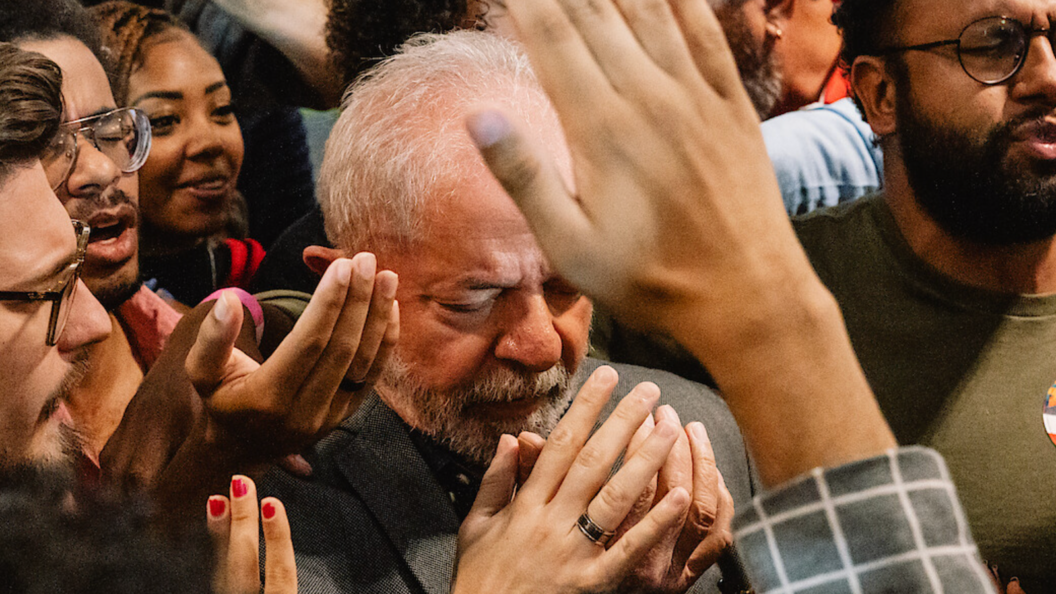Netflix’s Apocalypse in the Tropics: A Cautionary Tale of Political Division
Netflix has solidified its position as a leading provider of diverse content, particularly in the realm of non-fiction. Among the platform’s recent releases, Apocalypse in the Tropics stands out, offering a gripping examination of Brazil’s political landscape and the implications of its most recent presidential election.
Overview of Apocalypse in the Tropics
Directed by Petra Costa, Apocalypse in the Tropics delves into the 2022 presidential election in Brazil, which saw former President Luiz Inácio Lula da Silva narrowly defeating incumbent Jair Bolsonaro. The film closely analyzes the rise of far-right political ideologies and their influence on the election outcome, as well as the subsequent attempted coup by Bolsonaro’s supporters. Utilizing compelling footage from a time of heightened polarization, the documentary serves as a warning to other nations grappling with similar social divides.
Costa highlights the role of Silas Malafaia, a prominent far-right televangelist, who vigorously supported Bolsonaro. Malafaia’s backing stemmed from his fundamentalist religious beliefs, advocating policies that promote conservatism, including the outlawing of homosexuality and the restriction of abortion rights. Indicative of broader concerns, the film illustrates how Malafaia managed to shift mainstream narratives, making conspiracy theories more palatable to voters through passionate propaganda.
A Deep Dive into Political Dynamics
Apocalypse in the Tropics meticulously depicts how religious fervor and misinformation can mobilize a significant voter base. The documentary highlights specific instances where Malafaia portrayed da Silva’s supporters as morally corrupt, framing the election not merely as a political contest but as a spiritual battle. By presenting da Silva in a negative light, the film showcases how extremist rhetoric was used to sway moderate voters and fan the flames of division.
Costa’s direction elegantly intertwines religious motifs with current events, portraying how fundamentalist interpretations of scripture have been weaponized to instill fear among followers. This, she argues, creates a dangerous precedent for political discourse, particularly during moments of crisis, such as the COVID-19 pandemic. Throughout the film, Malafaia draws unsettling parallels between public health measures and historical persecution of religious groups, effectively fostering distrust in scientists and legal authorities.
Production Quality and Timeliness
While the content is harrowing, Costa’s stylistic choices elevate the film to a level that resonates artistically. The documentary employs a mix of historical footage and creative editing, showcasing how religious messaging has been woven into political strategies over the years. The film is laden with vivid imagery that captures the essence of Brazil’s political turmoil while remaining grounded in factual storytelling.
Apocalypse in the Tropics is not without its moments of hope. The elation surrounding da Silva’s reelection offers a counter-narrative to the prevailing fear and division throughout the election. However, this moment of triumph is juxtaposed against the lasting power of figures like Malafaia, who continue to sway public sentiment.
Significance and Conclusion
Though it presents a deeply troubling narrative, Apocalypse in the Tropics functions as a timely cautionary tale about the potential rise of radical movements in stable democracies. With its compelling visuals and poignant storytelling, the documentary is positioned as a significant contender for accolades, particularly in the Best Documentary category at the Oscars.
As the film suggests, the situation in Brazil is not unique; similar movements are gaining traction worldwide, underscoring the need for vigilance and engagement among citizens. The importance of addressing misinformation and fostering open dialogue cannot be overstated, as the events surrounding the 2022 Brazilian elections reveal the fragility of democracy in the face of extremist ideologies.
Apocalypse in the Tropics is scheduled for release on Netflix on July 14, 2025, and with a runtime of 109 minutes, it promises to be as essential as it is engaging. As viewers witness the intertwining of politics and religion, they may be inspired to reflect on their own societal dynamics—an outcome that is crucial in today’s highly polarized world.









